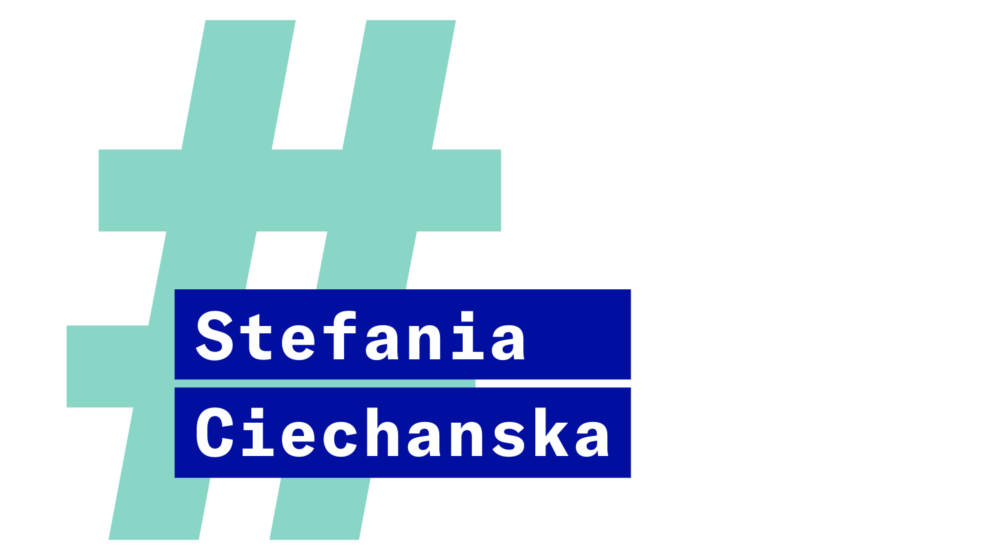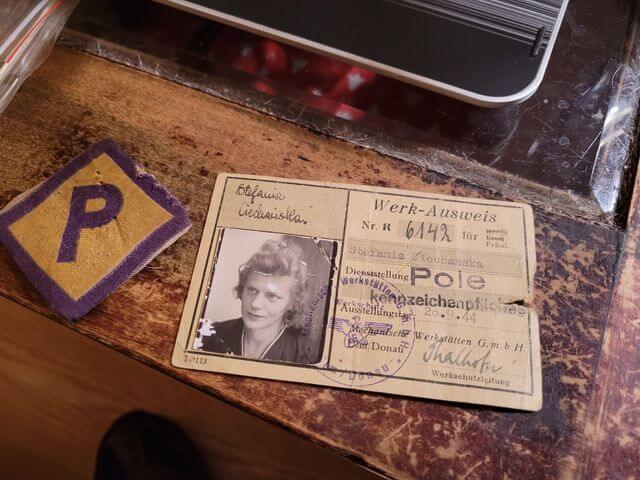We are looking for the relatives of Stefania Ciechanska

Stefania had to do forced labor in Germany, and that is where the trail goes cold. American historian Michael Eversole came across Stefania’s labor card at an auction of documents from World War II. He would like to return the card to Stefania’s relatives. “I think it’s important to look for her relatives. A document like this one which has a photo on it could be very important to her family.” There are only a few documents about Stefania Ciechanska in our archives, and they are dated 1944. What happened to her afterwards?
Stefania Ciechanska was born on March 6, 1924, in Łódź, Poland. We know she was registered with Mechanische Werkstätten G.m.b.H Ulm/Danube in the summer of 1944. The works originally had a production facility in Łódź, which was relocated to Ulm in August 1944. The Polish workforce had to move to Ulm too. The name Mechanische Werkstätten G.m.b.H was just a cover name: the facility that was set up in the early summer of 1944 in Ulm’s Wilhelmsburg Fortress was actually a vacuum tube factory that belonged to Telefunken.
The tube factory was the largest employer of forced laborers in Ulm. The living conditions that forced laborers like Stefania had to endure on a daily basis were very poor. On April 24, 1945, Wilhelmsburg Fortress became a camp for Displaced Persons, and the former forced laborers gradually returned to their families in Poland. Nothing is known about Stefania’s later life or about her family.

Stefania Ciechanska’s labor card.
Interview with Michael Eversole
Mr. Eversole, you recently contacted us on Facebook and asked for our support in researching Stefania Ciechanska and her relatives. What made you start this research?
I am a historian in a small military museum. We often get donations from the families of World War 2 veterans. When I find documents like this one, I feel it is important to try and find survivors or family members if possible. It is often the case with families involved in the Holocaust that people disappeared from the world without anyone ever knowing. I like to think that a document like this, especially one with a picture, might bring some closure to a family. So while documents like this one are important to history, I feel they’re even more important to families.
Why did you decide to contact the Arolsen Archives in this matter?
I first contacted the Polish embassy in Washington D.C. I could not get much information from anyone there. So I tried a few google searches and found you on Facebook. After going through your website, I felt you were perfect, so I reached out for help.
The document in question is a “Werks-Ausweis“ (labor card) from the “Mechanische Werkstätten G.m.b.H. Ulm / Donau” from 1944 – Stefania Ciechanska presumably had to perform forced labor there. How did the document come into your hands?
I bought this particular document at an auction of World War 2 documents. I bid on it intending to return it. I do not think these things belong in private collections. Presumably, many documents from that time still exist today in private cabinets and collections.
What do you expect to gain from the return, and why do you think it is important to return these mementoes to the relatives?
I do not expect anything personally by returning the documents. I do it because I do not think documents like this one belong in private collections, and they should only be given to museums if no one else wants them or if no family is left. A museum can copy the document and get the same general benefit from it. Maybe Stefania´s family has never actually seen her or doesn´t know exactly how or where she was taken. I have returned other documents in the past such as German soldiers’ death cards. I have some other documents I will begin working on soon.

